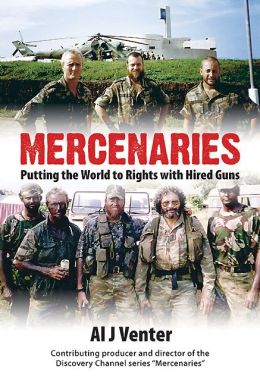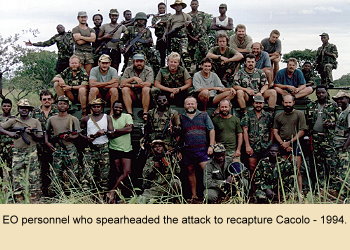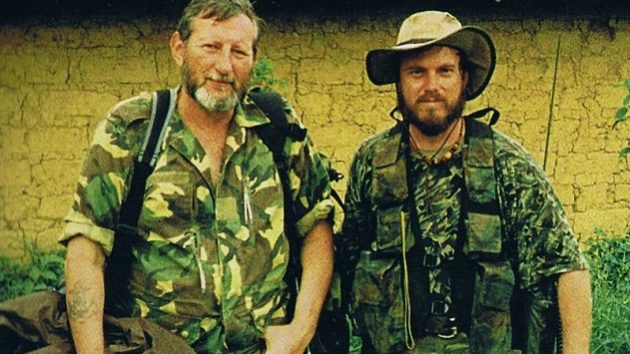Mercenaries: A Global Force for Good
 “In Ethiopia, 85 million people, almost half of its population is under 14 years of age. In rural and urban areas, children often begin working at 5 years. Poverty, death of one or both parents, child trafficking, forced early marriage are key factors that push children into work, above all young girls to be involved in commercial sex work. Around 90,000 children were found to be working in prostitution, over 50% started engaging in prostitution below 16 years of age. Child prostitution in Ethiopia is increasing incredibly during the last 5 years. Sex exploitation has devastating consequences for minors: physical and psychological trauma, HIV, diseases, drug addiction (qat abuse), unwanted pregnancy. A body is sold at a price of between 10 and 60 birr (0.40 – 2.40 €). The belief is the young girls are HIV free,” notes Maha Hamdan, Intelligence Analyst at TheIntelligenceCommunity.com.
“In Ethiopia, 85 million people, almost half of its population is under 14 years of age. In rural and urban areas, children often begin working at 5 years. Poverty, death of one or both parents, child trafficking, forced early marriage are key factors that push children into work, above all young girls to be involved in commercial sex work. Around 90,000 children were found to be working in prostitution, over 50% started engaging in prostitution below 16 years of age. Child prostitution in Ethiopia is increasing incredibly during the last 5 years. Sex exploitation has devastating consequences for minors: physical and psychological trauma, HIV, diseases, drug addiction (qat abuse), unwanted pregnancy. A body is sold at a price of between 10 and 60 birr (0.40 – 2.40 €). The belief is the young girls are HIV free,” notes Maha Hamdan, Intelligence Analyst at TheIntelligenceCommunity.com.
How can this and other human tragedies in the Levant, Africa and the Middle East be stopped?
Al J. Venter in his book Mercenaries: Putting the World Right with Hired Guns has the answer. Venter writes, “As David Shearer said in an article [Outsourcing War] published in Foreign Affairs (Fall edition, 1998), for three centuries the accepted international norm had been that only nation-states were permitted to fight wars. The rise of private companies entering the business as a legitimate, profit-oriented activity, he observed, had provoked outrage and prompted calls for them to be outlawed… Yet in recent times, there has been a shift in the nature of war.”
“Martin van Creveld, one of the preeminent war theoreticians of our time, postulated as much in his book, The Transformation of War. It is his view that the sort of conventional wars waged by nation-states are fading from the map. In [the] future, he suggests, ‘war-making entities’, are likely to resemble those of the pre-modern era,” Venter notes.
 In his book Venter presents case studies of “war-making entities” and how they have succeeded where nation-states, and the United Nations in particular, have failed. In a nut shell they have done more with less and in some cases changed history in struggles in Sierra Leone, Angola, Biafra, Rhodesia, Somalia, the Congo, Nigeria, Kosovo, Iraq and Afghanistan. These “war-making entities” or Private Military Companies (PMCs) have a long history of successes that have sadly gone unnoticed by the press.
In his book Venter presents case studies of “war-making entities” and how they have succeeded where nation-states, and the United Nations in particular, have failed. In a nut shell they have done more with less and in some cases changed history in struggles in Sierra Leone, Angola, Biafra, Rhodesia, Somalia, the Congo, Nigeria, Kosovo, Iraq and Afghanistan. These “war-making entities” or Private Military Companies (PMCs) have a long history of successes that have sadly gone unnoticed by the press.
Professional Military Companies like Executive Outcomes (EO) have changed the course of wars, as in Angola and Sierra Leone, using a few highly trained, well lead and mission focused professionals. Most PMCs are founded by former special forces soldiers from a variety of countries including South Africa, Canada, Great Britain and the United States. Perhaps the most notable American PMC is Blackwater U.S.A. now called Academi.
Venter uses Executive Outcomes as the example of a stellar PMC. Venter quotes American journalist Elizabeth Rubin, who reported on EO activities in Sierra Leone in a lengthy article for the New York magazine Harpers, “The South African mercenaries, she wrote, ‘were unreservedly hailed by the chiefs, the businessmen and the street people as saviors.'” According to Venter Executive Outcomes was successful because of its “four interlocking principles”:
1. Air support for ground operations;
2. Reliance on the individual in the field for a good level of personal initiative and basic common sense;
3. Logistics;
4. The need to run an efficient business so as to prevent loss of life in combat.
Venter notes, “EO’s command and control approach encouraged resolute, often independent action to achieve these aims.”
 Who fills the ranks of these PMCs? Venter writes, “Today’s professional soldier for hire, in the main, is a pretty ordinary guy. The majority probably wouldn’t be out of place in your local police force. About the only thing that sets the contemporary soldier of fortune apart from the rest is that he is a veteran with a good run of experience to show for it. He’s seen combat and he’s survived.”
Who fills the ranks of these PMCs? Venter writes, “Today’s professional soldier for hire, in the main, is a pretty ordinary guy. The majority probably wouldn’t be out of place in your local police force. About the only thing that sets the contemporary soldier of fortune apart from the rest is that he is a veteran with a good run of experience to show for it. He’s seen combat and he’s survived.”
You will read about the great names in the world of soldiers of fortune like gunship ace Mike Ellis, USAF Vietnam veteran Dana Drenkowski, Colonel Bob Denard, Cobus Claassens (on whose life Ed Zwick’s film Blood Diamonds is based), Count Carl Gustaf von Rosen, Roelf van Heerden, Dave McGrady, Arthur Walker, “Monster” Wilkins and many others.
You will also learn about how Emery Riddle School of Aeronautics in Miami played a role in providing Cuban pilots in the Congo.
This is a must read book if you are interested in finding the best PMC to join, what it takes to be a professional soldier of fortune or just love to read novels by Tom Clancy or Frederick Forsyth, who used some of these war dogs to create their characters.
The most important lesson to take away from Venter’s book is mercenaries are becoming a global force for good in this chaotic world in which we live. Honor them.
NOTE: The featured photo is of Al J. Venter (left) with Cobus Claassens taken after the successful attack on the rebel base at Biaima in the East of Sierra Leone during the West African civil war.


